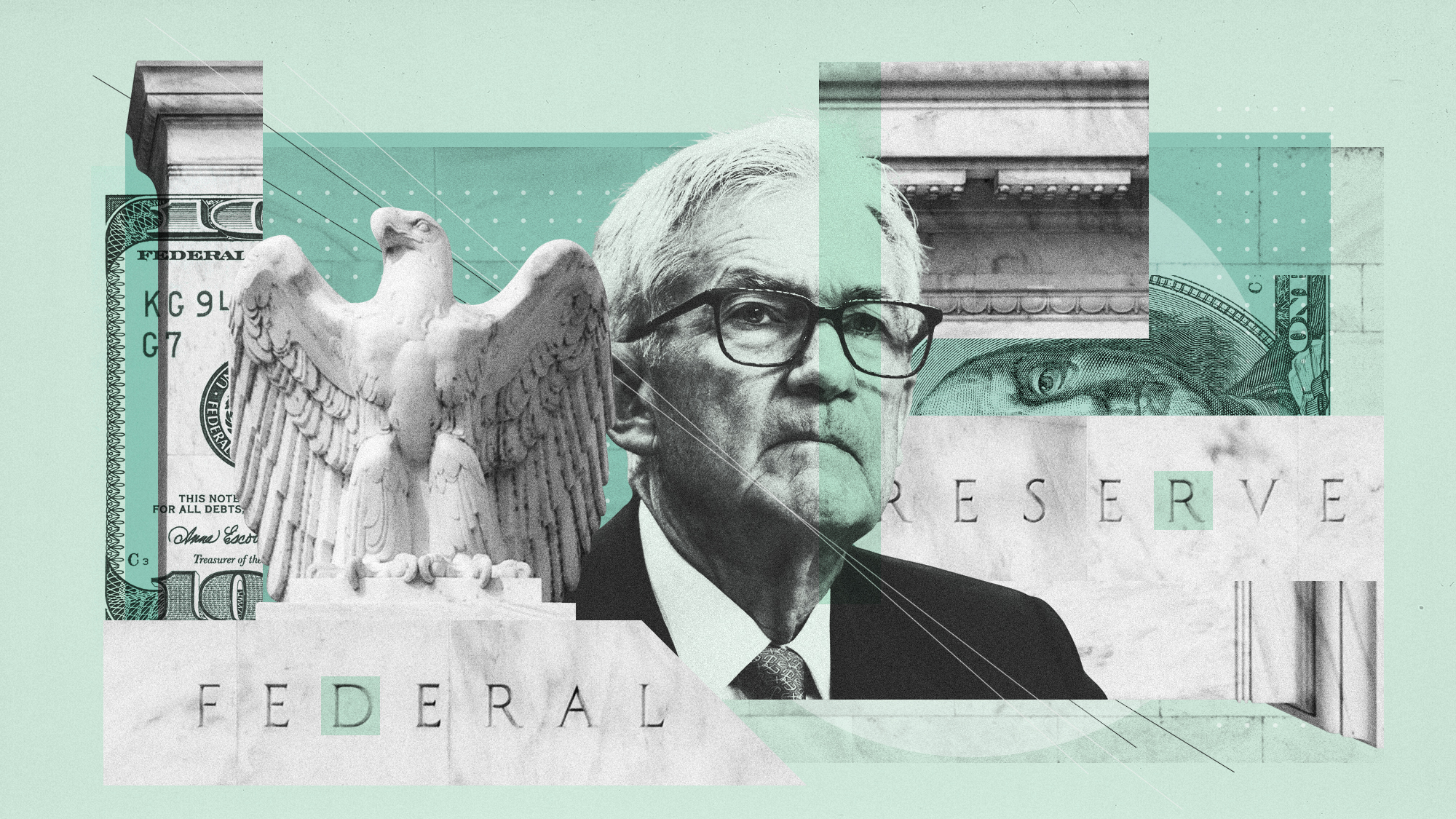Is the Fed ready to start cutting interest rates?
Recession fears and a presidential election affect the calculation


A free daily email with the biggest news stories of the day – and the best features from TheWeek.com
You are now subscribed
Your newsletter sign-up was successful
The recent slide in financial markets could lead to "aggressive rate cuts" by the Federal Reserve, said CBS News. Fed officials have raised rates over the last two years to rein in inflation, and Chair Jerome Powell had signaled he wanted to see "more evidence that inflation was cooling before cutting rates." But a weaker-than-expected August jobs report — and fears that the economy could be headed into a recession — has sparked "fears the Fed has been tardy in lowering rates."
"Powell faces a mutiny" if he doesn't act to cut interest rates at the Fed's next meeting in September, Eleanor Pringle said at Fortune. Without a rate cut, CNBC reported, one financial analyst told clients that a recession is "increasingly inevitable by year-end." But an emergency cut in the meantime is unlikely: The Fed has taken such drastic action only a few times in its history — and only in the most dire of economic moments. "If the question is, 'Should the Fed consider an intermeeting cut now?' we think history says, 'No, not even close,'" said a Bank of America analyst.
What did the commentators say?
An emergency cut "would be a mistake," Marcus Ashworth said at Bloomberg. The recent market downturn has less to do with the economy and is more about investors who have "gotten over their skis on over-leveraged trades" on sectors like artificial intelligence. "It's their Icarus moment." Despite the jobs report — and the growing risk of a recession — there's "nothing broken" in the American economy. An emergency cut is for actual emergencies. "And we're not there yet."
The Week
Escape your echo chamber. Get the facts behind the news, plus analysis from multiple perspectives.

Sign up for The Week's Free Newsletters
From our morning news briefing to a weekly Good News Newsletter, get the best of The Week delivered directly to your inbox.
From our morning news briefing to a weekly Good News Newsletter, get the best of The Week delivered directly to your inbox.
An emergency rate cut would end up "fueling more panic," Elisabeth Buchwald said at CNN. Probably the Fed should have lowered rates at its last meeting before the jobs report — if they'd known the unemployment rate was going to tick up to 4.3% "they would've been more convinced the U.S. economy is weakening enough that the benefits of a cut outweigh the risks." Doing an emergency cut now, though, might make recession fears a self-fulfilling prophecy. "The last thing the Fed wants is for people to believe the U.S. economy is on the cusp of a potential recession."
What next?
Would a rate cut help avert a recession? That depends on "whether the underlying economic situation is basically sound," said Axios, or if there are bigger problems looming. One Fed "pivot" away from higher rates, in 2019, helped sustain America's economic growth. But there are "gloomier" examples of failure: Rate cuts in 2007, for example, "helped soothe things for a while" but were ultimately unable to avert the Great Recession caused by a collapse in the home mortgages sector.
"It is important to remember, as the Fed surely does, that the stock market is not the economy," Barry Eichengreen said at the Financial Times. Stock market variations aren't enough to trigger an emergency cut unless they threaten the nation's financial stability. At the same time, Fed officials are constrained by the ongoing presidential campaign — Donald Trump would certainly see any drastic action to goose the economy as an "effort to cook the election" in favor of Democrats. That gives Powell and his colleagues plenty of reason "to move cautiously and incrementally." A rate cut is coming. We'll just have to wait a few more weeks.
A free daily email with the biggest news stories of the day – and the best features from TheWeek.com
Joel Mathis is a writer with 30 years of newspaper and online journalism experience. His work also regularly appears in National Geographic and The Kansas City Star. His awards include best online commentary at the Online News Association and (twice) at the City and Regional Magazine Association.
